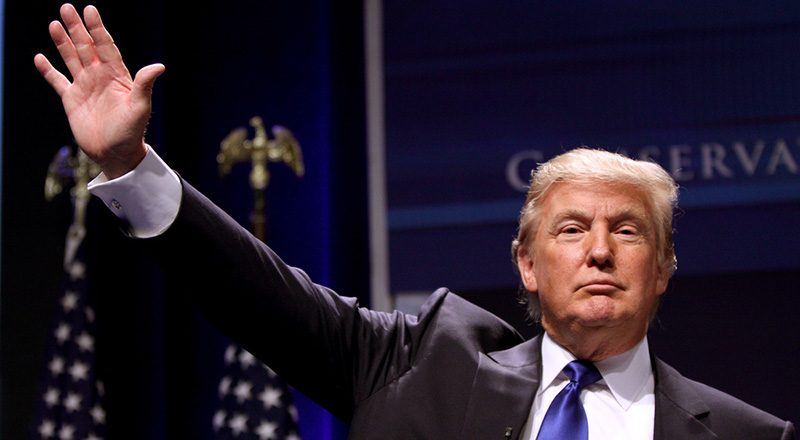Donald Trump’s shock victory in the US presidential elections is casting a shadow over UN climate talks in Marrakech, Morocco.
Delegates are uncertain how to react to the election of a climate sceptic to the White House, with many maintaining it will not affect the negotiations. The big question is which Trump will be making decisions on the future of the world’s support system.
There are two very different Trumps. One is the reality TV show host and contestant, who understands the value of spectacle and the need to take extreme positions to garner attention and eliminate competitors. He showed his expertise in this area, steadily eliminating one after another in the endless Republican primary race, and then very successfully outpositioning Hillary Clinton in the general election.
His strategy was brilliant, successfully pinning all the problems of the modern world on Clinton, with the argument that her decades of service in the government and with her foundation were evidence that she was not going to be any agent of change.
That election polls failed to capture his popularity could be attributed to the “David Duke Effect”, where voters were ashamed to admit to pollsters that they intended to support an avowed racist. Trump took extreme positions on everything from immigration to environment, and promised a total turnaround in America’s slide in its stature in the world.
Then there is the other Trump, the negotiator. Trump is known for making deals and negotiating hard. As climate expert Saleemul Huq put it: “He’s a natural born negotiator—he makes deals.”
Core to making deals is doing your research and compromising when things aren’t going your way. Huq argues that Trump will be heavily briefed by the State Department, NASA, and other top agencies, all of which will make clear the huge stakes of stepping back on climate action at home and abroad.
The evidence on whether Trump will “cancel the Paris Agreement,” as he promised during the campaign, or even seek to renegotiate this deal, remains to be seen.
As others have argued, the agreement puts scant demands on each country, who bring their own climate plans and then only have to report on their progress. There is no enforcement mechanism for non-compliance, so it is difficult to imagine how the deal could be less onerous.
A key building block of the Paris Agreement was the November 2014 joint announcement between the US and China. That announcement broke the logjam behind which many countries justified inaction by the non-efforts of the world’s two biggest polluters. In that one action, the two countries responsible for almost half of all emissions made “differentiated” pledges, showing that countries could show ambition that was quite different for each type of country.
So which Trump will govern? There is cause for both hope and fear.
The most worrying signal of Trump’s intentions is his appointment of Competitive Enterprise Institute climate denier Myron Ebell to reform government agencies on the environment and our approach to climate action. Ebell has since the days of the drafting of the Kyoto Protocol been working with fossil fuel industry funding to cast doubt on the science and undermine ambitious action to address the problem.
It would be truly disastrous for Trump to devastate the very agencies tasked with protecting our natural environment to keep it liveable, both within the United States and globally. So the prospect of giving Ebell the keys to the EPA and license to decimate the agency, the Clean Power Plan by which we will meet our pledges made internationally, and all the diplomatic efforts in our climate quiver, is truly terrifying.
Nearly all the mountains of scientific research on climate shows that we cannot afford to wait another four or eight years to take ambitious action to slash our emissions, if we want to avoid catastrophic impacts and destabilize the system. These are my fears.
However, I see a glimmer of hope. In his victory speech at 3am, Mr. Trump struck a conciliatory tone. For those who didn’t vote for me, he said: “I’m reaching out to you for your guidance and your help.” He promised his administration would “get along with nations that want to get along with us.” This is someone who other people can work with, and who hopefully would respect good deals made by his predecessor, like the Paris Agreement.
In 73 days, there will be a new boss in the White House. Between now and then, the world will be looking for signals about which Trump will show up. It makes sense that the latter Trump, the negotiator, would do so, since the reality show elimination part of the effort has been won.
If he is sincere that he’s “reaching out… for your guidance and your help,” here’s mine: listen to the real experts on this critical issue. Design forward-looking policy so that the US doesn’t end up a fossil country dependent on old technology while the rest of the world prospers on cheap renewables. Support collective action in the biggest deal-making organization on the planet, the United Nations.
Timmons Roberts is professor of environmental studies and sociology at Brown University
